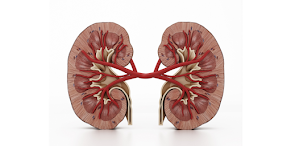Advancements in Kidney Disease Treatments
.png)
Kidney disease affects millions of people worldwide and it is also one of the most notoriously difficult health challenges to overcome which can be a life-threatening condition if not treated promptly. Fortunately, there have been significant innovations in kidney disease treatments in recent years that offer hope for those suffering from this condition, and have improved patient outcomes and quality of life. We will explore some of these innovations which are revolutionizing healthcare and their potential benefits. Through advances in biotechnology, medicine has seen significant breakthroughs when tackling certain illnesses affecting people today—including kidney diseases such as acute or chronic renal failure which can occur due to infections, trauma, or genetic factors among other causes. For many years medical practitioners have sought new ways of addressing this challenge by finding improved means for diagnosing problems earlier on and more effective methods for managing th...


